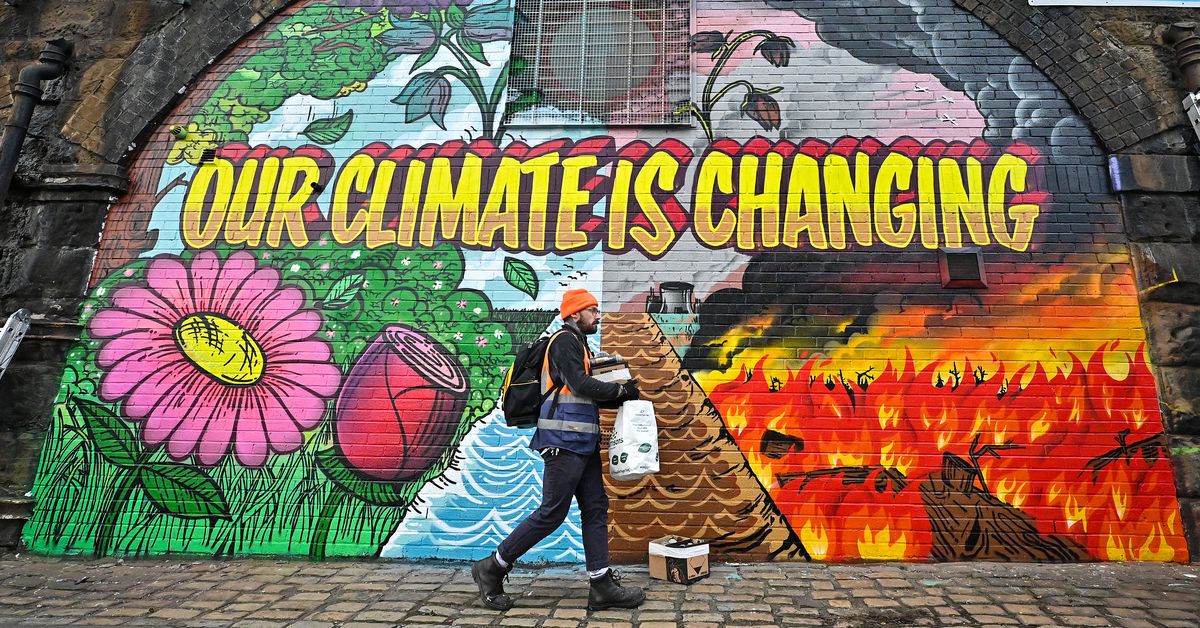
This is an excerpt from the newsletter for The Weeds. To sign up for a weekly dive into policy and its effects on people, click here.
As world leaders gather in Glasgow, Scotland, this week and next for the 2021 United Nations Climate Change Conference, there’s some genuinely good news: The world has made real progress.
Just a few years ago, before the 2015 Paris climate agreement, the expectation was that the world would get about 4 degrees Celsius hotter by 2100, compared to preindustrial levels.
Today, the world is on track for 3°C. That’s nowhere near enough, just about everyone in this field will tell you, but it’s real progress — one that makes a warming planet just a bit less catastrophic.
So what happened? Hannah Ritchie, a climate change researcher at the University of Oxford in the UK, summarized the big developments: “Coal is effectively dead in many countries. Renewable prices are falling rapidly. The price of solar fell by 89 percent in the past decade. Onshore wind fell by 70 percent. They’re now cheaper than coal and gas. To make this transition, we will need lots of energy storage. There’s good news there too: The price of batteries has fallen by 97 percent in the past 30 years.”
The kicker, Ritchie noted, is that all of this will push the world to renewable and cleaner energy regardless of one’s opinion on climate change “because it makes economic sense to do so.”
Again, it’s not enough. Brad Plumer and Nadja Popovich at the New York Times reported that even if the world’s leaders meet their existing commitments on climate change, the planet would still warm by 2 to 2.4°C by 2100.
The goal, to avoid the worst consequences, has long been to not surpass 1.5°C. It’s already a question if world leaders will keep their promises. But even if they do, we are on track to blow past the goal anyway.
That’s why world leaders are gathering at the UN this week: to put the planet on a better track. And while it’s increasingly unlikely that we will ever meet the 1.5°C threshold, it would help to get as close as possible to it.
The consequences of failure are dire, as we’ve seen in recent years with extreme weather events, including droughts, heat waves, floods, and hurricanes. As the world warms further, these events will become more severe and possibly happen more frequently, the UN’s Intergovernmental Panel on Climate Change found.
Of course, in domestic politics, skeptics of aggressive US climate policy will point out that much of the work at this point hinges on what developing countries like China and India do. It’s true: China and India are big polluters now.
But, advocates say, America can lead by example — and it can enable the technological change needed to get other countries to take action.
China and India haven’t relied on carbon-based energy sources because they dislike clean air; they’ve done it because it was the quickest, most affordable path to massive economic growth. So if the US can help cut costs on clean energy sources even further and make these sources more reliable (with, for example, more affordable storage options), then other countries would likely widely adopt them — as Ritchie noted, it would be “economic sense.”
There’s some good news on this front, too: President Joe Biden’s Build Back Better proposal would spend $555 billion to make further progress on climate goals. While it’s unlikely that the bill will be enough for the US to reach its goal of cutting its greenhouse gas emissions by half by 2030, it’s a big step forward.
So the battle against climate change is far from over. But humanity has made real progress — and as world leaders gather to discuss the issue once again, there’s reason to hope the momentum will continue.
A new study published by the National Bureau of Economic Research looked at whether financial incentives for Covid-19 vaccines worked, and the results are disappointing.
Researchers Tom Chang, Mireille Jacobson, Manisha Shah, Rajiv Pramanik, and Samir Shah randomly assigned unvaccinated members of a Medicaid-managed health care plan in Contra Costa County, California, to different vaccine-related interventions, including $10 or $50 financial incentives and various public health messages.
They found that “none of the treatments increased overall vaccination rates.” In fact, the financial incentives seemed to produce a backlash, decreasing vaccination rates among older individuals and people who supported Donald Trump in the 2020 election.
The study explicitly targeted the vaccine-hesitant, and it was focused on one county in California. So the findings might differ in other parts of the US.
Still, the results are certainly disappointing, and can help explain why vaccination rates didn’t seem to move much as a lot of states spun out different messages and offered incentives over the summer to get people vaccinated. And it suggests that more aggressive approaches, as much of the US now adopts vaccine mandates, really may be necessary.
"world" - Google News
November 05, 2021 at 11:00PM
https://ift.tt/3GU7gqT
The world’s progress on climate change - Vox.com
"world" - Google News
https://ift.tt/3d80zBJ
https://ift.tt/2WkdbyX
Bagikan Berita Ini














0 Response to "The world’s progress on climate change - Vox.com"
Post a Comment